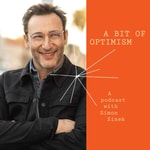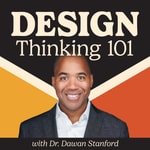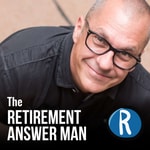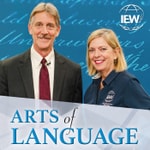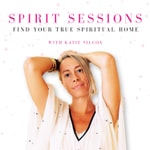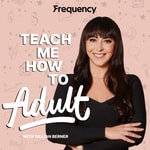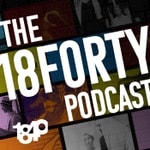With All Due Respect – Details, episodes & analysis
Podcast details
Technical and general information from the podcast's RSS feed.
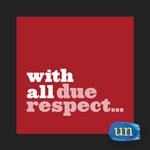
With All Due Respect
The WADR Project
Frequency: 1 episode/18d. Total Eps: 126

Recent rankings
Latest chart positions across Apple Podcasts and Spotify rankings.
Apple Podcasts
🇬🇧 Great Britain - christianity
29/12/2024#87
Spotify
No recent rankings available
Shared links between episodes and podcasts
Links found in episode descriptions and other podcasts that share them.
See all- https://anglicanaid.org.au/wadr/
125 shares
- https://mediabiasfactcheck.com/
26 shares
- https://undeceptions.com/
22 shares
RSS feed quality and score
Technical evaluation of the podcast's RSS feed quality and structure.
See allScore global : 79%
Publication history
Monthly episode publishing history over the past years.
You Asked For It
Episode 120
jeudi 21 novembre 2024 • Duration 52:26
This episode is brought to you by Anglican Aid. Your gift will strengthen churches and help transform communities. You can donate to With All Due Respect's featured causes here.
In our season finale, our hosts answer questions from the audience and give their hot takes on some thorny issues.
- (01:36) - - Q&A Part 1
- (22:47) - - Q&A Part 2
- (39:32) - - Through The Wardrobe
Lausanne
Episode 119
jeudi 7 novembre 2024 • Duration 56:09
This episode is brought to you by Anglican Aid. Your gift will strengthen churches and help transform communities. You can donate to With All Due Respect's featured causes here.
In the aftermath of the 2024 Lausanne Congress - at which Megan was a delegate - our hosts take stock of what went on, review the Seoul Statement (and other alliterative faith declarations of past conferences), and mull over the insights of other attendees.
They also discuss a documentary on the first Lausanne Congress, held way back in 1974.
- (01:50) - - Through The Wardrobe
- (15:55) - - What's Going On?
- (33:58) - - Be Our Guest
Childlike Theology
Episode 110
jeudi 4 juillet 2024 • Duration 59:17
This episode is brought to you by Anglican Aid. Your gift will strengthen churches and help transform communities. You can donate to With All Due Respect's featured causes here.
Theology. It's a term often associated with old professors and dusty books. But theology is actually crucial for the church. So, why don't more Christians take an interest in it? Why has it become so .... stale? These are the questions our hosts (and resident theologians) grapple with.
Speaking of childlike - Michael and Megan are joined this week by author Kaitlyn Scheiss, host of the Curiously Kaitlyn podcast where she fields questions about theology from children!
Finally, our hosts cast an eye over the coming-of-age film adaptation of Are You There God? It's Me, Margaret
Which is more important: your family or church family?
Episode 25
jeudi 3 octobre 2019 • Duration 45:11
This episode is brought to you by Anglican Aid. Your gift will strengthen churches and help transform communities. You can donate to With All Due Respect's featured causes here.
For argument's sake: where we take a debate, cut out the party politics and try to talk it out
Are family values biblical?
What's more important, our nuclear family or our church family? Do we idolise marriage in the church and in society at the expense of other relationships?
Megan and Michael decode the cosy phrase "family values" and look at what the Bible actually says on the topic.
Mentioned in this segment:
- Book by Eli J. Finkel that outlines the history of marriage – The All-or-Nothing Marriage
Glossary:
Megan and Michael sometimes like to use big words, so here's a glossary of particularly lofty terms in this segment.
- deleterious: causing harm or damage
- raison d'etre: A French phrase meaning reason for being
- sesquipedalian: used to describe a word that's very long (OK this wasn't really mentioned in the segment but you see why it's applicable)
Be our guest
Dani Treweek and a theology of singleness
Our guest this episode, Dani Treweek, has spent a lot of time thinking about singleness and the church – as a single Christian woman, a minister and in writing her PhD on a theological and pastoral ethic of singleness.
"Part of the problem with singleness is that we see it as a problem because it's not marriage," she explains.
Michael and Megan chat with Dani about the biblical view of singleness and marriage, and how the church can better relate to singles.
Mentioned in this segment:
- Dani Treweek's blog on Sydney Anglicans website (addressing John MacArthur's views on singleness) –
The "problem" with singleness - Beth Felker Jones's book – Faithful: A Theology of Sex
- Singled Minded Conference
Further reading/ listening:
- Read the edited version of With All Due Respect's interview with Dani at Eternity – Single, not married, is the new church norm
- Other Eternity articles on singleness: Four myths about singleness and 10 dumb things Christians have said about being single
- Dani Treweek speaks about pastoring singles on The Pastor's Heart podcast
- Dani on being single and a Christian on the Centre for Christian Living podcast
Marg and Dave: reviews from two people obsessed by stories, but not always the same ones
ABC TV's Old People's Home For 4 Year Olds
This heartwarming ABC documentary raises a key social issue: our treatment of older people. "This is a bit of a weeping sore for us in the West," says Michael.
Megan points out that it also highlights the social isolation and lack of intergenerational contact in our society – experienced by both young and old.
Cue the church: "one of the only institutions left where we do have people of all ages coming together."
While the final live episode of Old People's Home For 4 Year Olds recently aired, you can watch all episodes in the series on ABC iview. Warning: box of tissues needed. (And stay tuned for Michael's suggested new series: Old People's Home For Teenagers. ABC, are you reading this?)
Further reading/ viewing:
- ABC TV's Old People’s Home For 4 Year Olds on iview
- Eternity article on Old People’s Home For 4 Year Olds
Fact check:
Michael mentions a few statistics in this segment. Here's the research:
- 1 in 4 Australians live alone
- 10-40 per cent of community-dwelling older adults in developed countries experience depression, while up to half of people living in residential aged care facilities have significant depression symptoms
- "Older people who attend churches are happier and healthier"
Join in the discussion online
Abortion law, Christians and The Handmaid's Tale
Episode 24
mardi 17 septembre 2019 • Duration 44:05
This episode is brought to you by Anglican Aid. Your gift will strengthen churches and help transform communities. You can donate to With All Due Respect's featured causes here.
For argument's sake: where we take a debate, cut out the party politics and try to talk it out
As the NSW Parliament considers whether or not abortion should be legalised, Megan and Michael discuss the broader issues raised by the abortion debate:
- What does it mean to be pro-life or pro-choice? Can you be both at the same time?
- How do you balance the rights of the unborn child with women's agency over their own bodies?
- When does human life start anyway?
- Does legalising abortion automatically equate to an increase in the number of abortions?
- How should Christians respond to this increasingly politicised issue?
And what about the hot-button topics of gender selection and disability. Who determines whether or not a life is valuable?
Megan and Michael draw on the wisdom of a parent of a child with a disability, With All Due Respect listener Alison Preston, in debating this life-and-death issue.
One thing is clear: the law alone is inadequate in addressing a topic that requires a whole community response.
Mentioned in this segment:
- The NSW Reproductive Healthcare Reform Bill
- Alison Preston writes for Eternity about her decision to go through with her pregnancy and the joy her child has brought – The joy of having a baby with Down syndrome
Further reading:
- Eternity article on the Reproductive Health Care Reform Bill 2019 – Christians suggest changes to abortion bill
- Eternity opinion article by Paul O’Rourke, CEO of pro-life media and advocacy organisation, Emily’s Voice – What the Bible says about abortion
You did WHAT now? Looking at what the other M has been up to
Michael, always prepared to put himself on the line, has been stepping into the charged abortion debate on social media and in the press in an attempt to change the tone of the conversation.
A descendant of "backyard abortionists", Michael is aware of the "real human cost of an unregulated abortion industry", as well as the moral complexity of the abortion issue.
He makes this vital point for everyone in the church: In a society where one-quarter of women will experience an abortion, "If you don't think you have women in your congregation who have had an abortion, think again."
So how can Christians respond graciously instead of aggressively to this polarising issue? Listen up to how Michael and Megan are doing it.
Mentioned in this segment:
- Michael's Facebook post and subsequent article in The Daily Telegraph – Pro-life or choice, abortion nothing to celebrate
- Michael's appearance on the ABC's The Drum program – Episode 154, September 5, 2019
- Eternity article on the first 'Stand for Life' protest – Thousands gather in Sydney in last ditch effort to stop abortion bill
Further reading:
- Eternity article on the second 'Stand for Life' protest – Abortion rally told ‘Choose Life!’
- Eternity opinion article by church minister Mike Paget – Yes, there's abortion in your church
Marg and Dave: reviews from two people obsessed by stories, but not always the same ones
Now we're squarely in Megan's domain: discussing Season 3 of the dystopian TV series The Handmaid’s Tale – in particular episodes 8, 9 and 13 (the final).
Why has this show become so connected to the abortion debate (so that just wearing a red cloak signals a pro-choice stance)?
Megan guides Michael, and listeners, through the undercurrents of death-happy Gilead, exploring the nuances of values, conflict, faith and society.
Here's a taste of just one of the profound revelations Megan uncovers: "Looking after children is more than just getting them born; it is about giving them good lives."
Further reading:
- Independent article on the show's connection to real life – The Handmaid's Tale compared to Alabama abortion law vote: 'This is happening in our country in 2019'
- Margaret Atwood speaks to Her about her book that sparked the TV series – The author of The Handmaid's Tale has plenty to say about anti-abortion laws
- Eternity articles on The Handmaid's Tale – Has The Handmaid's Tale become ho-hum and The Handmaid’s Tale: religion gone wrong
Women, ministry and the church
Episode 23
jeudi 5 septembre 2019 • Duration 01:00:34
This episode is brought to you by Anglican Aid. Your gift will strengthen churches and help transform communities. You can donate to With All Due Respect's featured causes here.
Welcome back! Season two of With All Due Respect starts with a bang ...
For argument's sake: where we take a debate, cut out the party politics and try to talk it out
It's game on as Megan and Michael address the elephant in the room: the issue of gender in the church.
This topic marks one of the deepest divides among evangelical Christians, and the church in general. It's also one of the biggest disagreements between Megan and Michael personally (and the discussion that Michael's been avoiding because of the painful responses it can provoke).
So what should women do in the church and why does it matter anyway?
It's time for Megan and Michael to tie their colours to the mast: exactly what do they think about the "c word" (complementarianism) and the "e word" (egalitarianism), what's the biblical basis for these positions and how do they play out in the life of Christians and the church today.
While on opposite sides of the debate, both Megan and Michael agree that this is not just a "women's issue".
Further reading:
- Michael has written on feminism for Eternity – Perhaps feminism is not the enemy
- Megan has written on sex and power in the church for Eternity – Christians need to reform their ideas about sex and power
Also mentioned in this segment:
- Created Or Constructed? Great Gender Debate by Elaine Storkey
- Michael gives a shout-out to Matt Anslow, a member of the With All Due Respect Facebook group, who asked the following question (abbreviated): “My assumption is that God, being wholly good, gives us commands that are for our good ... Complementarians, at least as far as I’m aware, are unable to point to any objective good secured by prohibiting women from exercising these certain ministry roles. Usually the reason given for upholding these teachings is simply that God has commanded it in Scripture, and exegetical arguments ensue.
Keeping in mind that such commands are seen by many Christians as only being intended for and applicable to their original contexts, what objective goods do complementarians think are being secured by upholding their teaching on ministry roles?”
Q&A: you ask us questions, and we answer without the spin
You can’t ask that! Oh but you did, and Megan and Michael asked you to. The pair field a handful of some 600 questions about gender identity and the church thrown at them by members of With All Due Respect Facebook group – a community of Christians committed to respectful public conversation.
Megan goes into bat for the "feminist egalitarian" team and Michael the "moderate complementarian" team.
Here's just a taste of some of the curly questions they address: Isn't egalitarianism just about women seeking power? Does complementarianism always lead to abuse?
Mentioned in this segment:
- Both Megan and Michael have chapters in the book The Gender Conversation: Evangelical Perspectives on Gender, Scripture and the Christian Life.
Megan’s chapter is about gender construction, culture and Scripture, calling for both men and women to image Christ.
Michael's chapter is about responding to domestic and family violence by understanding the new call to mutuality and transformed masculinity.
The secret life of us: what makes the other one tick
Time to get personal.
Michael asks Megan, "Am I a misogynist?"
Megan asks Michael, "Do you think I'm called by God?"
After this epic first ep for season two, our co-hosts may not have solved the issues around gender roles in the church but hopefully we've reached a starting point for mutual respect, understanding and further conversation.
Almost one year on, are we any better at respectful conversation?
Episode 22
jeudi 1 août 2019 • Duration 45:51
This episode is brought to you by Anglican Aid. Your gift will strengthen churches and help transform communities. You can donate to With All Due Respect's featured causes here.
** With All Due Respect is taking a short break over August and will be back in the first week of September. First episode back with be about ... GENDER. **
For arguments sake: where we take a debate, cut out the party politics and try to talk it out
It's been almost a year since the the first episode of With All Due Respect, and we're coming back to the question that started it all: Can we agree to disagree?
Megan says this has become even more crucial since the WADR project began.
But it's confession time and Michael jumps straight in:
There's one topic that Megan and Michael (and Michael in particular) have been avoiding so far: Gender and the church. It's a topic that marks a deep divide among evangelical Christians, and Christians more generally. It's one of the biggest disagreements Megan and Michael have personally, too. And Michael says he's been avoiding the issue on the podcast because of the painfulness and difficulty that discussing it can often invoke.
So how do we tear down those barriers with other Christians who feel so strongly and differently to us? We may never get to common agreement, but trying to find common ground and to understand where each other is coming from should be the aim.
Megan says one of the ways she tries to interact with people is remember that that person has just as rich an internal world as she does - with all their life experiences, hurts and joys. So labelling someone (Megan is often labelled as a "progressive feminist") flattens them. And she says assuming someone else's intentions is just as bad in this.
Cue: virtue signalling
Megan says one way you can assume someone else's intentions - especially online - is by saying they're "virtue signalling". That is, when you are expressing values in a way that people say you're doing it so that you can be seen to be a good person. In Megan's experience, it's often something the right accuses of people on the left.
"It's a destructive thing to say to another person and deeply cynical," she says.
"The place for dialogue is not where we draw out the worst in people, but where we address the best in people."
But telling someone that they're virtue-signalling is essentially shutting down the conversation and refusing to see that there might be other reasons for what they're saying.
Michael wonders if the same can be said when someone dismisses his opinion by saying, "You would say that, you're a white male."
Both Megan and Michael refer to the With All Due Respect Facebook group, where they are trying to moderate the discussion in a way that reframes conversations and doesn't shut down discussion by the terms and phrases we use.
The duo take a look at other Christian podcasts out there who have attempted to frame their conversations in different ways and wonder if often our fences are too high. Is there a place for fences that discourage those who disagree with us?
The secret life of us: what makes the other one tick
Megan and Michael talk about how they've experienced the With All Due Respect journey and what's come up personally for them.
The WADR Facebook Group has been an interesting experiment to see how things in the podcast play out in real (or atleast social) life.
And Michael and Megan reminisce about how they first met and their first responses to each other.
Marg and Dave: reviews from two people obsessed by stories, but not always the same ones.
This episode, it's Megan's choice: Won’t you be my neighbor? (2018) documentary on Mister Rogers.
Fred Rogers (March 20, 1928 – February 27, 2003) was an American television personality, musician, puppeteer, writer, producer, and Presbyterian minister. He was known as the creator, composer, producer, head writer, showrunner and host of the preschool television series Mister Rogers' Neighborhood (1968–2001). Rogers would end each program by telling his viewers, "You've made this day a special day, by just your being you. There's no person in the whole world like you; and I like you just the way you are."
Megan thinks there are real connections in what they're trying to do with With All Due Respect.
What good is beauty in an ugly world?
Episode 21
jeudi 18 juillet 2019 • Duration 40:50
This episode is brought to you by Anglican Aid. Your gift will strengthen churches and help transform communities. You can donate to With All Due Respect's featured causes here.
For arguments sake: where we take a debate, cut out the party politics and try to talk it out
While beauty can be an abstract subject, it's also something that cuts into our everyday lives. Megan and Michael wanted to talk about this subject because they both feel the evangelical world can feel a bit confining when talking about beauty. Megan says her experience of baptists in particular is that they have a strained relationship with beauty.
"There's a suspicion of the beautiful, which goes back to the church fathers," says Michael. Something also happens during the Reformation, when Protestants want to get away from the visual, smash the statues and go back to the verbal. Luther even said that the ears are the organ of the Christian, not the eyes.
Evangelicalism is quite a pragmatic faith. "We're not cathedral builders," says Michael. "We want to things to make a difference," says Megan, so the feeling is that there's no time for "frippery".
Michael and Megan explore what beauty is - is it just 'high art' or is it broader than that? What can nature teach us about beauty? And is there a commonality of the experience of beauty that might be objective truth?
Megan has been reading Culture Care by Makoto Fujimura - an artist, academic and Christian -which issues a call to feed our culture's soul with beauty, creativity and generosity. As many Christians become more embattled in culture wars, Fujimura is asking how Christians can be people who draw others into beauty.
Also mentioned in this segment:
- The deepening crisis is evangelical Christianity in The Atlantic: "Evangelical Christians need another model for cultural and political engagement, and one of the best I am aware of has been articulated by the artist Makoto Fujimura, who speaks about “culture care” instead of “culture war."
Where credit's due: the influences that form and move us
It's Megan's turn to pick a book that was meaningful to her: Surprised by Joy by CS Lewis - the story of Lewis being converted to belief in God and then eventually to belief in Christianity.
Lewis' experience of beauty - which he calls experiences of joy - resonated with Megan, particularly when Lewis talks of creating imaginative worlds with his brothers as a child.
Michael says he picked up on the sense of longing through Lewis' work - deep in the heart of humans there is something that longs for the eternal.
Beauty, says Megan, shows us that things are significant, special. As the poet Gerard Manley Hopkins writes, "The world is charged with the grandeur of God."
Further reading:
- Michael has written on beauty for Eternity – Are Christians scared of beauty? and Why is there beauty in the world?
Marg and Dave: reviews from two people obsessed by stories, but not always the same ones.
We're talking transcendent music and faith. And Michael wants to talk about Bach: "The Christian who has done more to advance the cause of beauty than anyone is Johann Sebastian Bach," he says.
Megan, on the other hand, says the music that makes her think of beauty is African American spirituals: "there's a beauty in the sadness, but yet the hope ... there's a beauty that comes out of a the experience of humanity." One song in particular featured in season 3 of The Handmaid's Tale during a scene of infant baptism, 'Down to the river to pray'.
Also mentioned in this segment:
- Well-Tempered Clavier, Bach
- Mass in B Minor, Bach
- O Sacred Head Sore Wounded (From St Matthew's Passion, Bach)
- Down to the River to Pray, Alison Krauss version as seen on The Handmaid's Tale
Religious experience - do we need it and how to find it
Episode 20
jeudi 4 juillet 2019 • Duration 45:57
This episode is brought to you by Anglican Aid. Your gift will strengthen churches and help transform communities. You can donate to With All Due Respect's featured causes here.
For arguments sake: where we take a debate, cut out the party politics and try to talk it out
Do you need to 'experience' God in order to have real faith? Michael says he suggested this question because in his pastoral experience there are often questions about whether people should have had a spiritual or religious experience and whether you're a Christian if you haven't had one.
What if you don't ever have that feeling some describe as an "immediate, powerful, palpable experience of the spirit" that can be of great encouragement to those who receive them?
Megan offers the flipside to this, in that she believes that some in a more intellectually-based faith tradition are often questioned about their spiritual experiences in a way that makes them feel like they're in some way "dodgy".
The way different faith communities deal with spiritual or religious experience can make this subject fraught.
Michael says his views have changed and he hopes 'matured'. He believes God can give us religious experiences from time to time: they are individual and meant to encourage us. But because they are experiences we must be very careful, he says. We shouldn't normalise those experiences to the extent that those with different ones don't feel like they're Christians or don't feel like they have the Holy Spirit.
Megan has a different perspective, coming from her observations of those who don't 'experience God'. "Without experience, faith is ailing," she says. "The experience of God must be present ... but whether we're noticing it is another thing." The way we talk about those experiences and how we teach people to understand them is sub-par in the church today, Megan says.
How can we help people to be attentive to God in their lives. Megan believes a pastor must first be attentive to God in their own lives. "There needs to be more room for the contemplation part of the pastoral role," she argues. If you're also immersed in Scripture, you come to understand better how God speaks and acts. Michael says it's also about teaching people to pray. Bible study should also be a place for spiritual direction. It doesn't have to be just about reading the word and understanding the word, but about how to take that understanding into our lives to see the hand of God at work.
Listening to others' experiences of God might also make us more attune to the work of God in our own lives, says Megan. It doesn't always have to be listening to God at the top of a mountain or in a cave - it's seeing God in your every day experience, how he meets needs. There is an attentiveness required.
A lot of the time the people who say they haven't had an experience of God just need help with the vocabulary to use.
Michael warns against the dangers of making experience so much in the foreground that we forget to parse it through Scripture. "We don't have a fresh revelation that overturns scripture."
Also mentioned in this segment:
The secret life of us: in which we try to figure out what makes the other one tick
Megan and Michael discuss their own religious experiences and how they've affected their faith. They look back at how such experiences were spoken about in their families of origin.
Michael says he grew up in a Christian household often trying to deal with the tension of being treated as a Christian for as long as he could remember but also waiting for that moment of 'conversion'. He says he certainly had an intellectualised sense of the faith especially in later teens and university.
Megan, on the other hand, says her mother is a person who has had many supernatural experiences and so she grew up talking a lot about those experiences and having some of her own.
The duo also open up about when they've felt spiritually dry and how they've managed to come back to God.
Also mentioned in this segment:
- CS Lewis’ Surprised by Joy: “For those who are still disposed to proceed I will only underline the quality common to the three experiences; it is that of an unsatisfied desire which is itself more desirable than any other satisfaction. I call it Joy, which is here a technical term and must be sharply distinguished both from Happiness and from Pleasure. Joy (in my sense) has indeed one characteristic, and one only, in common with them; the fact that anyone who has experienced it will want it again.”
Marg and Dave: reviews from two people obsessed by stories, but not always the same ones.
Les Murray (17 October 1938 – 29 April 2019) was a prize winning Australian poet, anthologist, and critic. His career spanned over 40 years and he published nearly 30 volumes of poetry as well as two verse novels and collections of his prose writings. He was rated in 1997 by the National Trust of Australia as one of the 100 Australian Living Treasures.
Murray's poetry is full of his religious experience. He said it was because that was his experience.
"The true god gives his flesh and blood. Idols demand yours off you." That quote, says Michael, which is from Murray's poem Church, should be on church signs everywhere. "It points to the significance of Christ in this consumer economy that sucks us dry," says Michael.
Poems mentioned in this segment:
Further reading:
- Greg Clarke reflects on Les Murray after his death: Not absolutely ordinary at all
- Les Murray's conversion experience, as written by Catholic Weekly
- Thomas Keneally on Murray's death
Competing tribes and troubled community
Episode 19
jeudi 20 juin 2019 • Duration 42:03
This episode is brought to you by Anglican Aid. Your gift will strengthen churches and help transform communities. You can donate to With All Due Respect's featured causes here.
For arguments sake: where we take a debate, cut out the party politics and try to talk it out
Can we (Christians, that is!) do politics without being partisan? There's been a storm since Australians discovered the outcome of the Federal election, particularly within the Aussie Christian community. Some Christians seem unable to believe that there are others of their faith who would have voted the opposite of them. And because the outcome of the election was so unexpected, there was a lot of "unvarnished" gut reactions on social media.
Megan and Michael discuss whether it's possible to remain a 'Christian community' when we are so tribalised. And what part should prayer play when it comes to praying for our leaders, especially for those with whom we strongly disagree?
Both Megan and Michael agree that Christians don't need to be apolitical. We are told to have a drive for justice. But how can we do it better? Megan suggests acknowledging real emotions on either side is a good place to start. The pair candidly share how they personally voted, discussing the reasons for their choice and try to model how to respectfully disagree on political priorities while holding to core truths of the gospel.
Also mentioned in this segment:
- Donald Trump turning up unannounced at a Virginian church in the middle of a service for prayer.
- Unapologetic by Francis Spufford
Discomfort Zone: ever think someone might think differently if they step outside their comfort zone? This is where we make the other do just that.
Michael gets to choose the book this episode and it is ... The Second Mountain: The quest for the moral life by David Brooks. Brooks is a Canadian-born American centre-right political and cultural commentator who writes for The New York Times.
Everybody tells you to live for a cause larger than yourself, but how exactly do you do it? Brooks explores what it takes to lead a meaningful life in a self-centred world.
Megan says she certainly wouldn't have read the book had Michael not suggested it. But she really liked it. "It's like the book that I would have written if I was a conservative dude," she says jokingly. But Brooks' emphasis on joy and community also captured her attention.
Michael says he sees this book as one that he can use in pastoring people, especially those in their 40s who are looking to disentangle from their individualism and look to something greater.
In his book, Brooks argues that such individualism makes people so disconnected that they flock to their "tribe", and contributes to the 'us' and 'them' issues we have in politics.
Read more on Christian discussion of David Brook's book:
- On The Gospel Coalition website: David Brooks on his journey as a wandering Jew and a confused Christian
- From Christianity Today: How David Brooks meandered toward God
Marg and Dave: reviews from two people obsessed by stories, but not always the same ones.
We're looking at Derry Girls this week. You can watch the first season on Netflix.
Derry Girls is a comedy set in Derry, Northern Ireland. It’s about the lives of ordinary people living under the spectre of the Troubles in the early nineties, all seen through the eyes of 16 year old Erin and her friends. Writer Lisa McGee bases the story on her own experiences of growing up in Northern Ireland as a normal sixteen year old girl amidst civil conflict.
How does a community with those deep divisions go about living in it?
